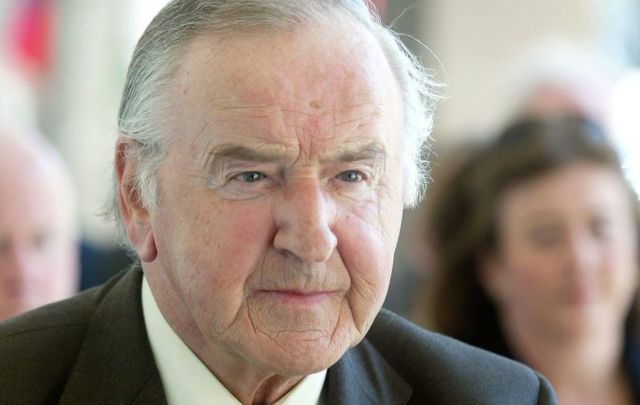
News
November 04, 2025
On This Day: Albert Reynolds, who became Taoiseach, is born in 1932
As Taoiseach, Albert Reynolds played an integral role in the Northern Ireland peace process.
**Remembering Albert Reynolds: A Legacy of Peace on His Birthday**
Today marks the anniversary of the birth of Albert Reynolds, a pivotal figure in Irish history best remembered for his significant contribution to the Northern Ireland peace process. Born in 1932, Reynolds rose through the ranks of Irish politics to become Taoiseach, a position he used to tirelessly pursue a lasting resolution to the decades-long conflict.
While his early career saw success in the business world before entering politics, it was his leadership as Taoiseach that truly cemented his place in the nation's memory. Taking office at a crucial juncture, Reynolds recognized the opportunity to build bridges and foster dialogue between all parties involved in the Northern Ireland conflict.
His approach was characterized by a willingness to take risks and engage in innovative diplomacy. He understood that achieving peace required open communication and a commitment to addressing the concerns of all sides. Reynolds fostered a close working relationship with then-British Prime Minister John Major, recognizing that collaboration between the Irish and British governments was essential for progress.
Reynolds's efforts laid the groundwork for the historic Downing Street Declaration in 1993, a joint declaration by the Irish and British governments that set out principles for a peaceful resolution. This declaration was a landmark achievement, affirming the right of the people of Northern Ireland to self-determination and paving the way for further negotiations.
Although his time as Taoiseach was marked by political challenges, his unwavering dedication to peace in Northern Ireland remains his most enduring legacy. He demonstrated a commitment to dialogue and compromise, principles that continue to be vital for building a more peaceful and inclusive society. On this day, as we remember his birth, we also celebrate his profound impact on the pursuit of peace and reconciliation on the island of Ireland. His vision and determination continue to inspire those working towards a future free from conflict.
Today marks the anniversary of the birth of Albert Reynolds, a pivotal figure in Irish history best remembered for his significant contribution to the Northern Ireland peace process. Born in 1932, Reynolds rose through the ranks of Irish politics to become Taoiseach, a position he used to tirelessly pursue a lasting resolution to the decades-long conflict.
While his early career saw success in the business world before entering politics, it was his leadership as Taoiseach that truly cemented his place in the nation's memory. Taking office at a crucial juncture, Reynolds recognized the opportunity to build bridges and foster dialogue between all parties involved in the Northern Ireland conflict.
His approach was characterized by a willingness to take risks and engage in innovative diplomacy. He understood that achieving peace required open communication and a commitment to addressing the concerns of all sides. Reynolds fostered a close working relationship with then-British Prime Minister John Major, recognizing that collaboration between the Irish and British governments was essential for progress.
Reynolds's efforts laid the groundwork for the historic Downing Street Declaration in 1993, a joint declaration by the Irish and British governments that set out principles for a peaceful resolution. This declaration was a landmark achievement, affirming the right of the people of Northern Ireland to self-determination and paving the way for further negotiations.
Although his time as Taoiseach was marked by political challenges, his unwavering dedication to peace in Northern Ireland remains his most enduring legacy. He demonstrated a commitment to dialogue and compromise, principles that continue to be vital for building a more peaceful and inclusive society. On this day, as we remember his birth, we also celebrate his profound impact on the pursuit of peace and reconciliation on the island of Ireland. His vision and determination continue to inspire those working towards a future free from conflict.
Category:
Politics